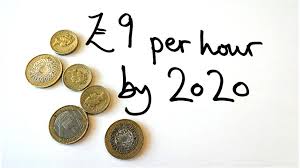Tips for Individuals
As we are now gearing up for the new tax year in April, we have put together some tips for individuals to consider.
Dividend Taxation
From April 2016 the way dividends are taxed are changing, instead of the tax credit system there will be a £5,000 dividend allowance. If you are manager owned business, are a basic rate tax payer and if company profits allow it would be advisable to take dividends up to the basic rate band before the rules change in April 2016. If you require tax planning on this please do not hesitate to get in touch.
Use up your Partners Tax Free Allowance
The marriage allowance allows you to transfer part of your personal allowance to your husband, wife, or civil partner. To benefit as a couple, you can transfer up to £1,000 in 2016/2017, to your spouse or civil partner provided that the recipient is not liable to income tax above the basic rate. Taxpayers have 4 years to make this election.
Pay into a Pension Scheme
Contributions to your employer’s pension scheme can be made from your gross pay before any deductions are made for tax. All employers will soon have to offer pension schemes to their employees. A percentage of your pay will automatically be put into the scheme, to which in most cases, your employer will add money and to which you will receive tax relief on the contributions.
Check your Tax Code
Is your tax code correct? Having the wrong tax code could mean you are paying too little or even too much tax! The standard tax code for 2016/2017 will be 1100L, meaning you can earn up to £11,000 before paying tax at 20%. Even though this is the standard code, reductions can be made by HMRC in respect of benefits in kind, unpaid tax, and other taxable income. Likewise, the code can be increased in respect of allowable expenditure for example subscriptions. If you believe that your tax code is wrong you can contact us for advice or HMRC to review the code.
Help to Buy ISA
Designed for first time buyers, the government has created the Help to Buy Scheme, to help you take the first steps towards buying your own home. The Help to Buy ISA is available to each individual buyer as opposed to each household, and pays a government bonus of 25%. So for every £200 a month saved, you receive an extra £50 bonus up to a maximum of £3,000, boosting your savings of £12,000 to £15,000. The minimum saving is £1,600 to claim a £400 bonus and you can kick start your account by depositing a lump sum of up to £1,200. On purchasing your first home your solicitor will apply for the government bonus to add to your savings.
If you have any questions about the above then please give us a call and we would be happy to discuss with you.






